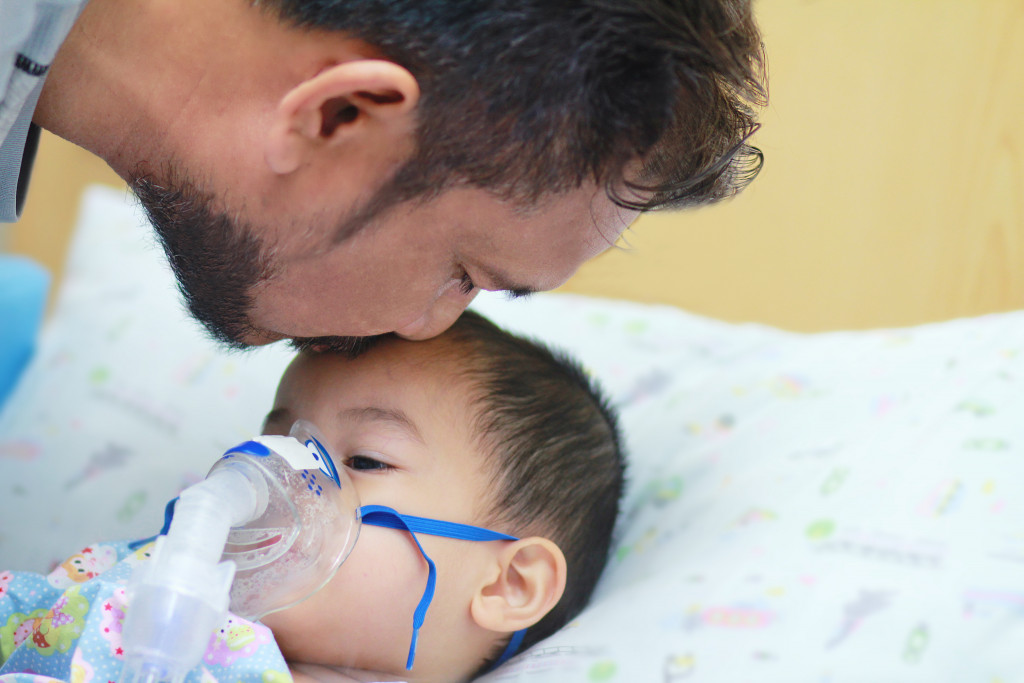If any one of your loved ones gets sick during the crisis, this can easily put additional stress on your family. This is even if they are presenting symptoms not related to COVID-19. This is since the pandemic made many people scared about going to their doctor’s clinics and the hospitals.
Know that you can play a huge role in helping your loved one overcome sickness in the middle of a crisis. Depending on their condition, there are things you can do to offer your support. Here’s what you ought to know to better support sick loved ones during the crisis.
Educate Yourself
It is not enough that you know what your loved one’s condition is. Educating yourself involves trying to learn everything there is to know about their situation. Instead of simply going to the internet for quick online research, talk to their doctors directly. Ask your questions and take notes.
Their healthcare provider is your best source of information since they already know your loved one’s medical history. Learn about the symptoms of their condition, how their case can progress, and ways you can help your loved one overcome their battle. Ask how you can help manage their symptoms, what their options are if they are in pain, and what you can do to help ease their other symptoms.
Keeping yourself informed is the best way to start offering your support to your loved one. This will give you the proper knowledge to address their potential issue. This will also allow you to make the best decision in case they require more help and assistance in the future.
Be Present
As much as possible, be present so that your loved one will feel your support. If you don’t live with your loved ones, reach out to them regularly and see how they are doing. Remind them about their prescription medications and the doctor’s orders to ensure they do everything they need to do to get better.
Even if you live in the same house, it is best to practice social distancing and wear masks when socializing with your sick loved one. This is for their own health and safety. You don’t want to take chances by unknowingly exposing them to anything if you still go out often to run errands.

It also helps if you can help your loved one with their doctor’s appointments. If they need to undergo any tests, be present by driving them to their destination. You can also consider taking your loved one for a private ultrasound scan service if their doctor requests one.
A private ultrasound (UTZ) is easy to book and does not require a GP referral. You can book your loved one’s session online and choose a location near you. This can give you peace of mind knowing you can avoid further exposing them to other diseases in hospitals and other crowded healthcare facilities.
Be a good listener and ask about their feelings. If they feel comfortable opening up, allow them to pour out their emotions. Avoid telling them to always be positive since there is such a thing as toxic positivity.
Don’t Forget About Yourself
If you are your loved one’s primary caregiver, know that you also have the need to rest, eat healthily, exercise, and gain the support of your own support system. Just because you are now taking care of your sick loved one full-time does not mean you should forget about taking care of your own needs.
Remember that you cannot give your 100% support if you are unhappy, sick, and out of focus. You can better care for your loved one if you get to have enough sleep and have enough energy to take care of their needs. You should also be alert enough to recognize if something is already happening to them.
Have your own support system and talk to them about your thoughts and feelings. Take a break, and if your loved one has other family members and friends willing to watch over them, grab the chance and say yes. Allow them to spend quality time with your loved ones while you take care of your needs.
Supporting your sick loved ones do not necessarily mean you should already forget about your own health. There are things you can do to offer your support without compromising your own health. Just make sure you keep health and safety precautions in mind. Remember that the pandemic is making everything more complicated. The last thing you want is for your loved one to get sick from the virus while battling another medical condition.






